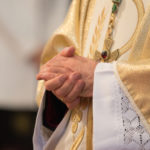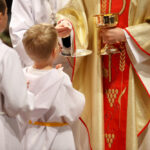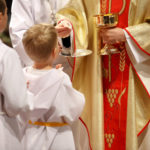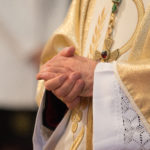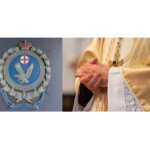The Offence of Sexual Intercourse with a Child Under the Age of 10 Years in NSW
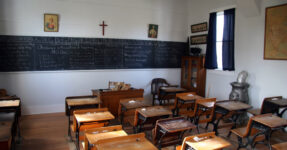
Another former Catholic Brother has been sentenced to imprisonment for multiple child sexual offences.
Systemic sexual abuse
The Royal Commission into Institutional Responses to Child Sexual Abuse heard accusations against thirty brothers from Kendall Grange Special School for Boys in the Hunter Valley region of New South Wales.
A total of 41 formal complaints of abuse were lodged with the Commission.
Since then, hundreds of boys have successfully sued the religious school and several brothers have been convicted of child sexual offences.
Daniel Slattery, known as ‘Brother Daniel’ is now 67 years old and his victims are in their early 50s.
On Friday, 16 November 2021, Slattery was convicted before Justice Helen Syme in Downing Centre District Court of multiple child sexual offences including aggravated sexual assault and committing acts of indecency against three boys aged between nine and 13 years from January to December 1980.
Her Honour sentenced Brother Daniel to total of 40 years and six months in prison, ordering him to serve a cumulative term of 11 years.
Boys were given wine and sleeping pills
The victims testified in court of the terror and pain of being raped and assaulted by Brother Daniel who plied them with communal wine and sleeping pills while speaking of God and the Bible. They did note that he, at least, was “gentler” than the other brothers at the school.
The school had a culture of violent abuse, not just sexual but physical too.
It’s difficult to understand how the school, run by charitable organisation the Hospitaller Order of the Brothers of St John of God, an order of the Catholic Church, concealed such vicious crimes for so many years.
However, it’s been noted in several of the cases which have come before the courts that the organisation has not been particularly cooperative, despite numerous investigations.
The boys were told they would burn in Hell, be visited by the Angel of Death and never see their parents again if they told anyone about the abuse.
Other Brothers have already been convicted and sentenced
The most notorious offender Bernard McGrath who was head of the school was sentenced in December 2019.
He was already serving a maximum 33-year prison term for offences against a dozen boys at Kendall Grange between 1978 and 1985 when NSW District Court Judge Gina O’Rourke sentenced him to an additional 27 years in November 2019, for crimes against another 15 Kendall Grange boys.
This was McGrath’s fourth sentencing for child sex crimes. He was first jailed in New Zealand in 1993, and then in Australia in 1995, which suggests, as victims have pointed out time and again, that the Catholic Church knew of his offending, and yet turned a blind eye, doing nothing about it.
The tragedy is that the Kendall Grange Special School, now known as the ‘house of evil’ was set up in 948 to cater for boys with intellectual disabilities.
The majority of the students who attended the school in the early years had intellectual and academic difficulties. Later the school began to cater for boys who had behavioural and social problems. It was operational until 2001.
Two other former staff members, Brother Roger Mount was jailed for more than seven years for multiple child sex offences and Brother Rodger Moloney was convicted in New Zealand in 2008 ffor multiple child sex offences.
Vatican makes important changes to Cannon Law
In June this year, the Vatican announced revisions to the Code of Canon Law, with major reforms relating to sexual abuse.
The change includes criminalising grooming, acknowledging that both children and adults can be victims as well as extending punishment to lay people employed in church institutions.
Most importantly, the church will eliminate the ‘code of silence’ that has allowed bishops and other leaders to ignore or cover up abuse, making clear that those in positions of authority will be held responsible if they fail to properly investigate or sanction predator priests.
Canon law is the legal structure that governs Catholic Church matters, and the Church’s billion or so followers around the world.
So these are positive changes, which are due to come into effect in December. Since the child sex abuse scandal that has rocked the Catholic Church globally in recent years, there has been pressure on the Catholic Church to change its culture. Pope Francis has said that the church will take a ‘zero tolerance’ approach.
In Australia, the laws probably mean very little in practice given that since the Royal Commission several laws relating to child sexual abuse, including reference to the duty of guaridans/parents and carers to expose abuse, have been amended, although the Canon Law is now more aligned with those laws.
However, critics have pointed out that the changes fall well short of punishing de-frocking clergy who have already been found guilty of crimes against children. Many also believe that the laws need to go further, to acknowledge victims, many of whom are still fighting for compensation.
The offence of sexual intercourse with a child under the age of 10 years in NSW
Sexual intercourse with a child under 10 years of age is an offence under section 66A of the Crimes Act 1900 (NSW) which carries a maximum penalty of life in prison.
To establish the offence, the prosecution must prove beyond reasonable doubt that:
- You had sexual intercourse with a child under the age of 10 years, and
- You knew or were reckless as to whether the child was under the age of 10, or you had no reasonable grounds to believe the child was over the age of 10.
Where the prosecution is unable to establish the mental element relating to age, you may be convicted of a lesser offence such as sexual intercourse with a child between 10 and 14 years of age.
‘Sexual intercourse’ is defined as:
- The penetration to any extent of a female’s genitalia, or the anus of any person, by any part of, or object used by, another person, or
- The introduction of a penis into the mouth of another person, or
- Cunnilingus, or
- The continuation of any of these activities.
Life in prison means ‘for the term of the person’s natural life’.
Duress is a defence to the charge.



